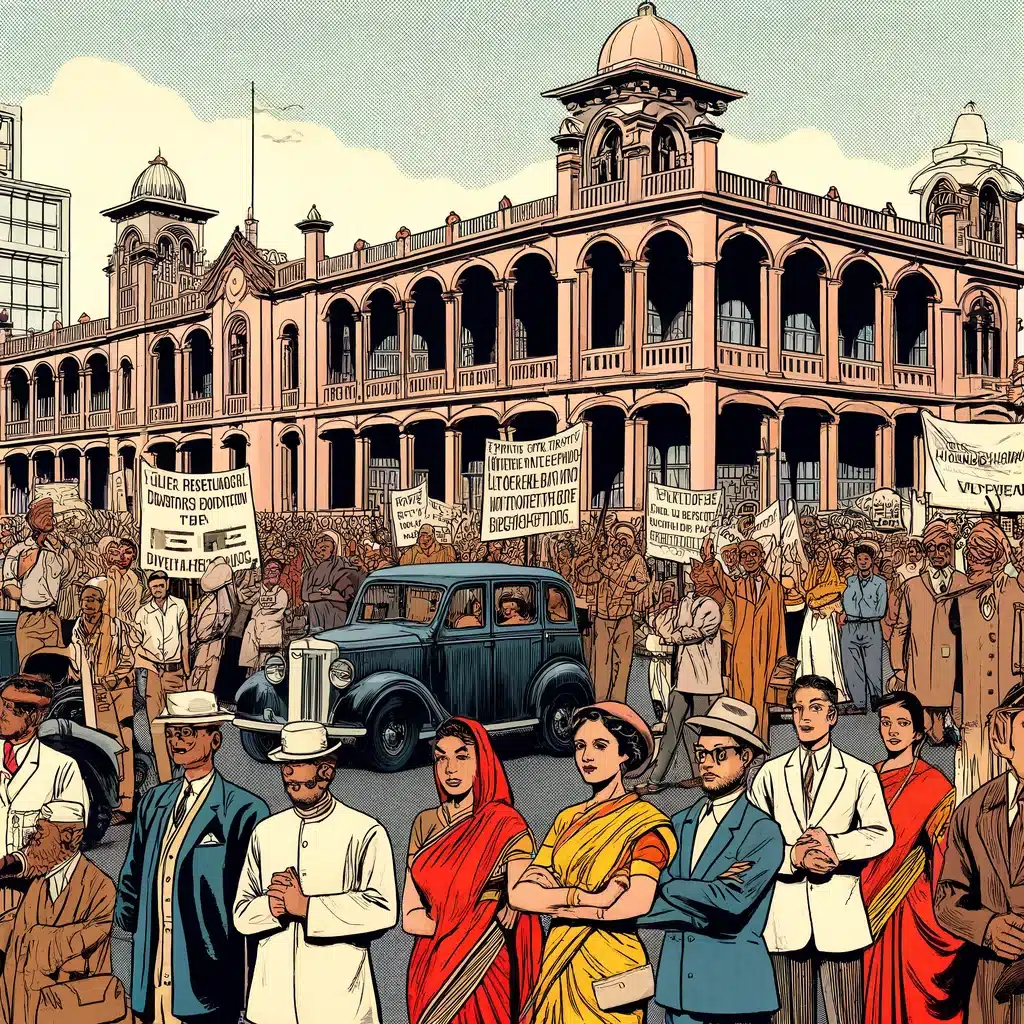Aug 17, 2020 17:23 UTC
| Updated:
Aug 17, 2020 at 17:23 UTC
OUTLOOK AND ANATHEMA OF ARTICLE-13 IN CONSTITUTION OF INDIA
Nature of Article 13
The Constitution of India carries a dynamic phenomenon in itself and Article 13 is one of the most encapsulated articles which are composed in the Part III of the Constitution under Fundamental Rights. It is through Article 13 that the Constitution prohibits the Parliament and the state legislatures from making laws that “may take away or abridge the fundamental rights” guaranteed to the citizens of the country. The provisions under Article 13 ensure protection of the fundamental rights and consider any law “inconsistent with or in derogation of the fundamental rights” as void.
Doctrines and Various Aspects under Article 13
From the bare perusal of the Article it is clear that Article 13 consists of two parts are as follows:-
Pre-Constitutional Laws [Article 13(1)];
The legislative competence of an enactment is to be determined with reference to the constitutional provisions as they stood at the time when the Act was made, except where an amendment of the Constitution is given retrospective effect. A person may be prosecuted and punished under a pre-Constitutional law even after the commencement of the Constitution, for an offence committed before the Constitution came into force, even though the law which made the offence punishable is inconsistent with Part III of the Constitution. The procedure for such prosecution after the commencement of the Constitution must not however be repugnant to the Constitution. Where though the statute is a pre-constitution law, it is sought to be enforced after the commencement of the Constitution, the validity of the executive action can be challenged without involving a challenge as to the validity of the pre-Constitution statute. The Constitution has no retrospective effect.
All inconsistent existing laws, therefore, become void only from the commencement of the Constitution. Acts done before such commencement in pursuance or in contravention to the provision of any law which after the commencement becomes void because of inconsistency with the fundamental rights are not affected. The inconsistent law is not wiped out in as much as the past acts are concerned.
Post-Constitutional Laws [Article 13(2)].
In Saghir Ahmed v. State of UP Court held that Article 13(1) by reason of its language cannot be read as having obliterated the entire operation of the inconsistent law or having wiped it out altogether from the statute book. Such law existed for all the past transactions and for the enforcement of rights and liabilities before the date of the Constitution as was held in the case of Keshava Madhava Menon v. State of Bombay.
Doctrine of Eclipse
The law which has been valid at its inception but has become void on the coming into force of the Constitution due to be inconsistent with the Fundamental Rights and once the inconsistency is removed, the shadow is removed and it is revived and becomes enforceable. The law which has been valid at its inception but has become invalid on the coming into force of the Constitution of India by reason of being inconsistent with the Fundamental Rights guaranteed in Part III of the Constitution is treated to be dormant but not dead and, therefore, if by the subsequent amendment of the Constitution the inconsistency which has made it unconstitutional is removed, the law will become free from all blemish or infirmity and it will become enforceable. This is called the Doctrine of Eclipse.
Doctrine of Severability
Doctrine of severability means that if an offending provision can be separated from that which is constitutional then only that part which is offending is to be declared as void and not the entire statute. It provides that, where only a part of the law is inconsistent with or contravenes the Fundamental Right, it is only that part which shall be void under Article 13 and not the whole of law. The courts apply the doctrine of severability or separability to separate the valid portion of the law from the invalid portion. In several cases, the court has declared some provisions void and the remaining Act valid.
Article 13 (1) provides that all laws in force in the territory of India immediately before the commencement of this Constitution, in so far as they are inconsistent with the provision of this part, shall, to the extent of such inconsistency, be void.
Article 13 (2) provides that the state shall not make any law, which takes away or abridges the rights conferred by this part and any law made in contravention of this clause shall, to the extent of the contravention, be void.
The words “to the extent of such inconsistency be void” in Article 13(1) & 13(2) means that only the repugnant provision of the law in question shall be treated by courts as void and not the entire statute. The primary test is whether what remains is so inextricably mixed with the part declared invalid that what remains cannot survive independently.
Meaning of Terms “Law” and “Law in Force” [Meaning of the Term ‘Law’ [Article 13(3) and 13(4)]
Article 13(3) (a) defines the word “law”. Law for the purpose of Article 13 includes any ordinance, order, by-law, rule, regulation, notification, custom or usage having in the territory of India, the force of law.
Article 13(3)(b) provides that the expression “laws in force” used in Clause (1) thereof, includes “laws passed or made by a Legislature or other competent authority in the territory of India before the commencement of this Constitution and not previously repealed, notwithstanding that any such law or any part thereof may not be then in operation either at all or in particular areas.” It, therefore, includes laws which were on the Statute Book, though not in operation.
Thus the word “law” has been given wider meaning. Not only enacted law or legislation has been included in the word “law” but ordinance, order, bye-law, rule, regulation, notification and custom and usage having the force of law have been included within the meaning of “law” for the purpose of Article 13 and therefore not only enacted law or legislation, but any of these things may be challenged if it is inconsistent with or in derogation of the Fundamental Rights.
Thus, “law in force” is intended to include laws made by the legislature or other competent authority before the commencement of the Constitution and not previously repealed.
Amendments to Article 13:
The 24th amendment the Indian Constitution was enacted by the then Indira Gandhi government in November 1971. The objective was to nullify the Supreme Court’s ruling that had left the Parliament with no power to curtail the Fundamental Rights. Clause (4) was inserted in Article 13, which states: “Nothing in this article shall apply to any amendment of this Constitution made under article 368.” This provision added more power to the Parliament when it comes to amending the Constitution. It brought Fundamental Rights within the purview of amendment procedure and judicial intervention or review of those amendments was prohibited.
The amendment evoked sharp reactions from the media fraternity and they explained this move as “too sweeping.” The amendment faced equal criticism from the jurists and the members of the Constituent Assembly. The draconian nature of the amendment was further reflected in the fact that the new provision made it obligatory for the President to give his assent when a Constitution Amendment Bill is submitted to him.
In Golak Nath v State of Punjab, the Supreme Court overruled the aforesaid decision and held that Parliament could not amend the Fundamental Rights. In this case, the Court has expressed the view that the word “law” in Article 13(2) includes the constitutional amendments also and therefore, if the amendment of the Constitution takes away or abridges the Fundamental Rights, the amendment shall be void.
In order to nullify the decision of Golak Nath, The Constitution (Twenty-fourth Amendment) Act, 1971, inserted Clause (4) in Article 13 and Clause (3) in Article 368 to the effect “Nothing in Article 13 shall apply to any amendment of this Constitution made under Article 368. The constitutionality of this amendment was upheld by the Supreme Court in Keshwananda Bharati v. State of Kerala.



































